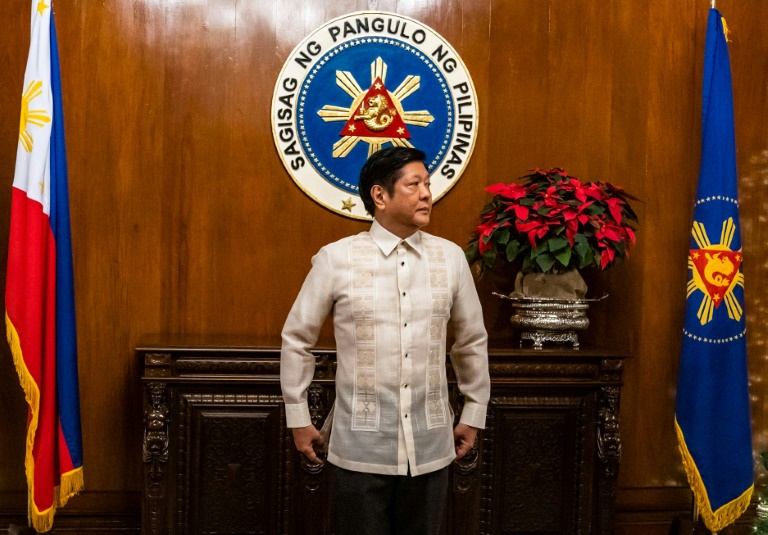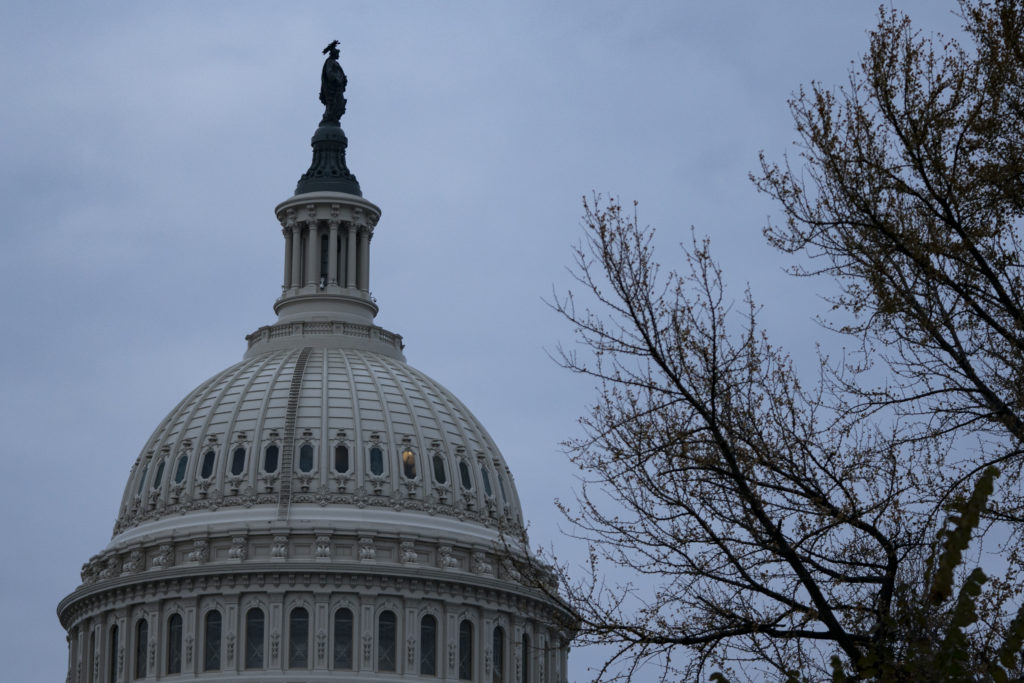Philippines President Ferdinand Marcos Jr would chair the proposed sovereign wealth fund
Philippine lawmakers have proposed a $4.9 billion sovereign wealth fund to be chaired by President Ferdinand Marcos Jr to boost growth, but critics warn it will be prone to graft and risk Filipino pensions.
Congressmen Sandro Marcos and Martin Romualdez — the president’s son and cousin respectively — are among the six authors of the bill filed to the House of Representatives and will be examined by several committees before being debated in the house.
The “Maharlika Investments Fund” (MIF) would be seeded with 275 billion pesos from government financial institutions, including two pension funds and two banks, according to the latest version of the bill.
It would help the Marcos administration achieve its goals of getting the Philippine economy to “soar to greater heights in spite of external shocks”, the authors wrote.
The word “maharlika” is widely associated with Marcos Jr’s late dictator father and namesake, who presided over widespread human rights abuses and corruption during his two decades in power. He was ousted in 1986.
Marcos Sr claimed to have led an anti-Japanese guerrilla unit called Ang Mga Maharlika during World War II, but he has been accused of lying about his war record.
The MIF has been met with concern from business groups, economists, activists and opposition figures, who have questioned the need for a sovereign wealth fund in the debt-laden country.
They argue pension funds were already being invested and that diverting them to the MIF would expose them to additional risk.
Even the president’s own sister, Senator Imee Marcos, said it was “risky to gamble” retirement funds.
“We all know about our neighbour Malaysia where their 1MDB was a real disaster where the money was looted,” she said, referring to the graft scandal that involved billions of dollars of state funds.
A lack of safeguards also meant “the potential for corruption is almost limitless”, Vincent Lazatin, former executive director of the Transparency and Accountability Network, told AFP Tuesday.
– ‘A lot of questions’ –
The bill’s proponents highlighted Indonesia as an example of a sovereign wealth fund successfully being used to attract direct investments into infrastructure and emerging industries.
But Natixis senior economist Trinh Nguyen said Indonesia’s fund has a “very clear” investment objective, while the Philippine proposal “lacks a direction”.
“There are a lot of questions… How is it going to benefit the longer-term development objective of the Philippines because it’s not very clear to me that it would,” she said.
Under the proposed bill, MIF funds would be “exempt from any regulatory restrictions”.
Investment options would include financial derivatives, equities, infrastructure projects and “other investments as may be approved by the Board”.
Congressman Joey Salceda, who leads the technical working group examining the bill, told AFP the fund’s governing board would be chaired by the president.
Former president Gloria Arroyo, who has backed the bill, said it was a “powerful statement that the highest official of the land will hold himself as ultimately accountable to the Filipino people for the performance of the Fund”.
But Lazatin noted that the country had a dismal record of punishing elected officials for corruption.
“Our laws are good on paper, but in practice… we have not been able to hold public officials accountable,” he said.
An estimated $10 billion was stolen from state coffers over the course of Marcos Sr’s rule, while the family has been accused of owing more than $3.6 billion in estate taxes.
No one in the clan has been jailed.











